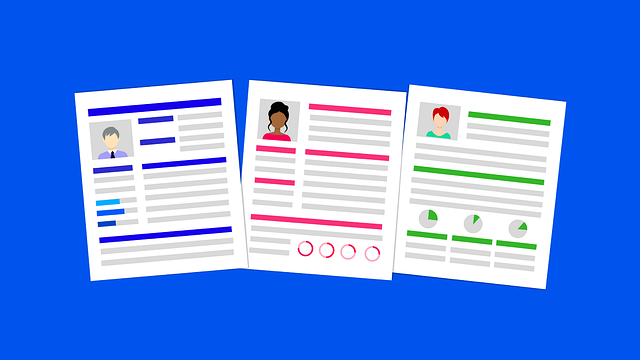
Top 5 Things to Consider While Changing Jobs in Cyber Security
Posted on:
by Mark Prizeman
IT Jobs and Recruitment Insights
Has your role become a little bit stale? Looking for a new opportunity within the cyber security space but don’t know where to start? This happens to us all regardless of the line of work we are in but the hardest part for people looking to change jobs is where exactly do they begin.
It might sound simple but covering the basics first is the easiest way to start. Building a strong network, creating a CV that showcases your experience and the benefits you would bring to a new company are key.
Highlighting any skills, hard or soft, that you can work on to give yourself an edge in the market and preparation for any upcoming interviews is crucial to landing yourself that dream role you are looking for.
Grow your network

People vector created by pch.vector - www.freepik.com
Building up a network of like minded professionals in your relevant field can be a great way of leveraging influence while searching for a new role. By connecting with professionals at senior positions and hiring managers within companies you aspire to work in will improve your chances of securing the job. By building relationships and engaging with these individuals can make you stand out of the crowd.
Top tip: Try to find common ground, research the company and their jobs page and personalise any message you send, highlighting your interest in the role that would be relevant to you.
Build a good CV

From a recruiter’s perspective, someone who screens CVs on a daily basis, it is essential that you build a strong CV that showcases the skills and experience that would make you an appealing candidate for the hiring manager reviewing. Depending on the role, there could be numerous other applicants and you need to ensure you need to make a lasting first impression .
A strong professional summary can allow you to sell yourself well and highlight what sets you apart from the pack. Here you can highlight your relevant skill sets and your motivations.
Ensuring your CV is relevant to the role you are applying to is a must. If there is a specific set of certificates that are required for the role, ensure you are highlighting your qualifications and suitability for the role.
You can find out more here with our "A Guide to Writing Your Perfect Tech CV" which will help you build as strong a CV as possible.
Invest in certifications

Business vector created by makyzz - www.freepik.com
It is very important that you keep up to date with the relevant and necessary skills that are desirable for your industry. Completing certs shows you have an interest in learning and self-development that will be looked upon quite favourably from an employer’s perspective. Some really beneficial cyber security certs you should look to invest in are:
- CEH - Certified Ethical Hacker
- CISM - Certified Information Security Manager
- CompTIA Security+
- CISSP - Certified Information Systems Security Professional
- CISA – Certified Information Systems Auditor
You can find more insights into these courses here and a more in-depth list of the most sought-after cyber security certificates to help boost your career.
Finding the right fit for you
What does your ideal role/company look like? You have made the decision to change up your work life, so you owe it to yourself to invest time into seeking out a company where the culture matches your expectations.
Do your homework, find out what companies can offer you in terms of career opportunities, are they known for hiring internally for promotions? Do they offer a flexible work environment? Is a hybrid style of remote working something you’re looking for or do you want to work fully remote? What benefits can you look forward to and time off? Does the company have a good work life balance? It’s a big step changing company, so make sure you know what you want so you can transition seamlessly into your new team.
Interview preparation

Office vector created by stories - www.freepik.com
Once you have homed in on the role and company, it is then very important during the process of changing jobs that you prepare for any upcoming interviews. All companies are different, and it is important to tailor your preparation accordingly.
Cybersecurity roles involve protecting sensitive business data; hence you must prove that you are trustworthy, reliable, and possess problem-solving skills, ingenuity, and calm when facing a difficult situation.
Interview questions can be designed to learn your experience and abilities to protect a company from cyber threats and also gauge how well you will fit in within an organisation.
Here are some questions typically asked during a Cybersecurity interview. These questions can vary depending on the level and the role that you are applying for.
-
What is Cryptography?
-
What is a Firewall and why is it used?
-
What is the difference between VA(Vulnerability Assessment) and PT(Penetration Testing)?
-
What are the response codes that can be received from a Web Application?
-
What are the steps to set up a firewall?
-
What are SSL connection and SSL session?
-
What is meant by Eavesdropping attack
-
What is the main difference between SSL and TLS?
-
Explain the difference between asymmetric and symmetric encryption.
-
What is the difference between Threat, Vulnerability, and Risk?
-
What is Cross-Site Scripting and how it can be prevented?
-
What is the difference between hashing and encryption?
-
What is the use of a firewall and how it can be implemented?
-
What is the difference between vulnerability assessment and penetration testing?
-
What is the difference between stored and reflected XSS?
-
What are the techniques used in preventing a Brute Force Attack?
-
List the common types of cybersecurity attacks.
-
Define data leakage and its types?
-
What is the information leak, and what causes it?
-
What distinguishes between IDS and IPS?
-
What is Cross-Site Scripting, and how to avoid it?
-
What are the Cybersecurity approach benefits?
-
What is a three-way handshake?
-
What are the steps to build a firewall?
-
What are the methods used to avoid a password attack by brute force?
-
What is security with two variables, and how will it be applied to public websites?
-
How would you strengthen user authentication?
-
If you had to both compress and encrypt data during a transmission, which would you do first?
Conduct your research on companies and try to find out as much as possible about their cultures and expectations. Make sure you have a list of questions you want answered also. The interview process should be a two-way street with you being able to engage the hiring manager and find out as much information about the role and what is in store if you’re successful in the role.
You can read more about this here where we highlight The Top Questions Hiring Managers Need to Answer.
If there is anything I have missed, I would love to hear from you and your experiences working in the industry. I am always available at mark.prizeman@gempool.ie and would be happy to discuss anything from new job opportunities, what to expect in the current market and salary expectations.
Blog picture attribute: Business vector created by freepik - www.freepik.com





